26 pictures that will make you want to visit Machu Picchu
Welcome to the Inca Trail, one of the most famous hikes in the world.

It's recommended that you hang out in town for a few days (common starting points are Cusco and Ollantaytambo) before attempting the hike in order to get acclimatized to the altitude.
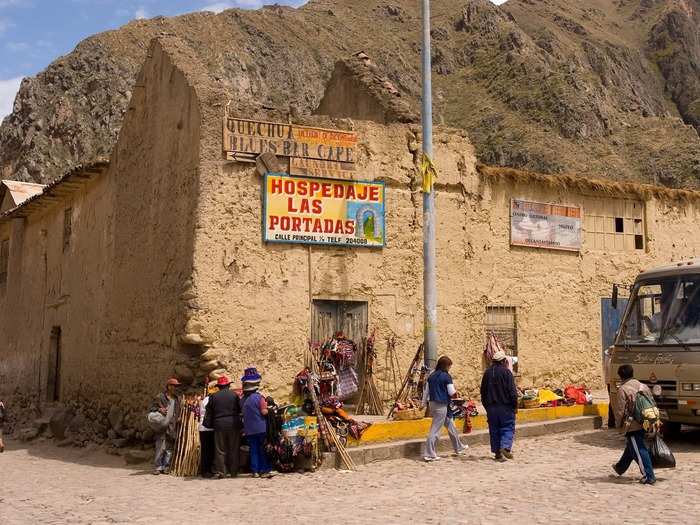
The Inca trail actually consists of three overlapping trails, each of which varies in duration and level of difficulty.
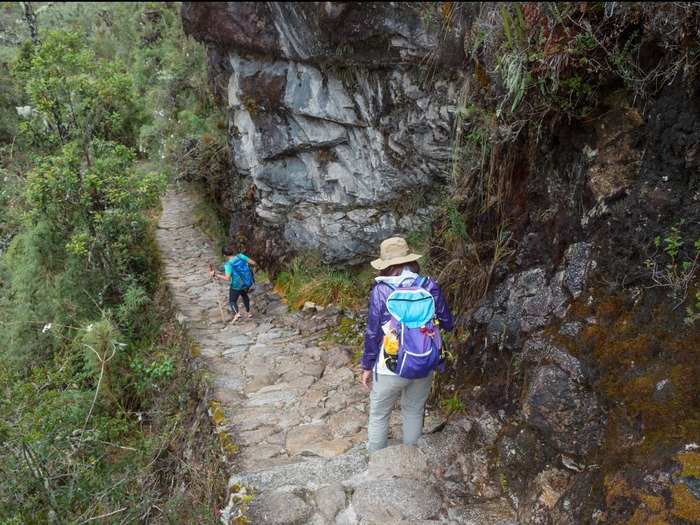
Be prepared for two to seven days of intense climbs, potential altitude sickness, and cold, cold nights — as well as incredibly rewarding views.
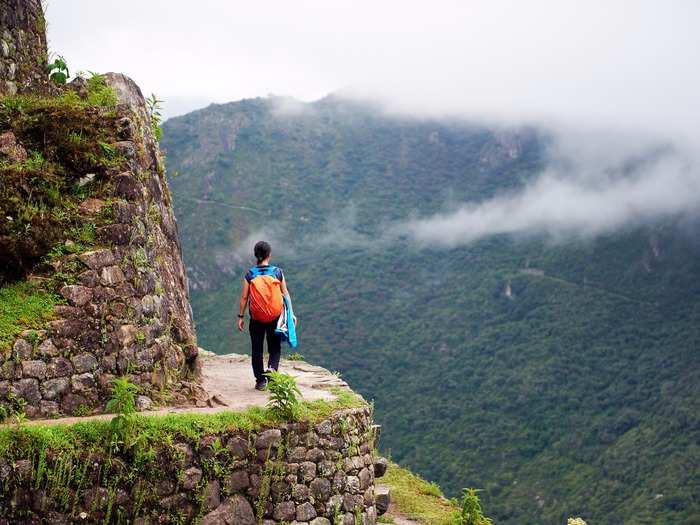
Even locals can't get enough of those views.
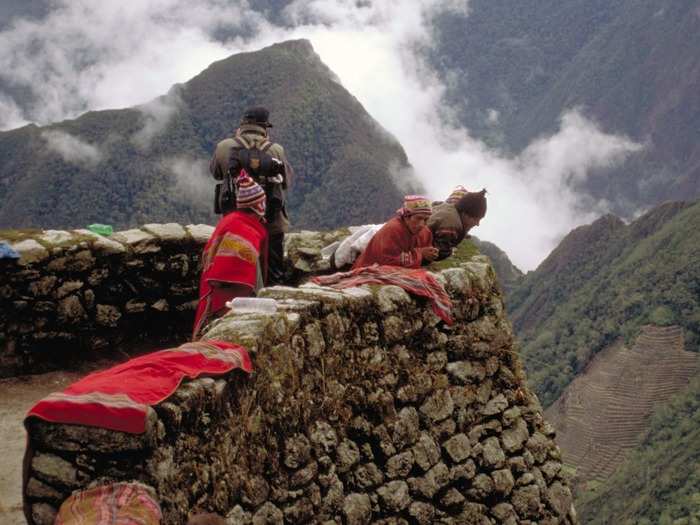
There are plenty of alpacas here.
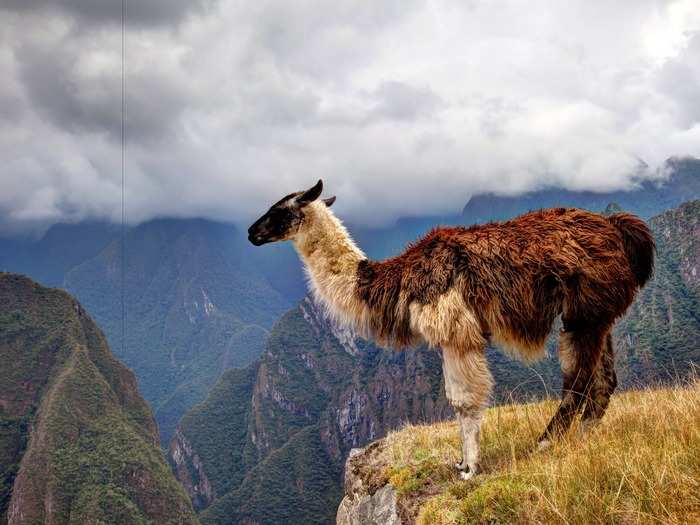
The Andes have some truly stunning scenery.
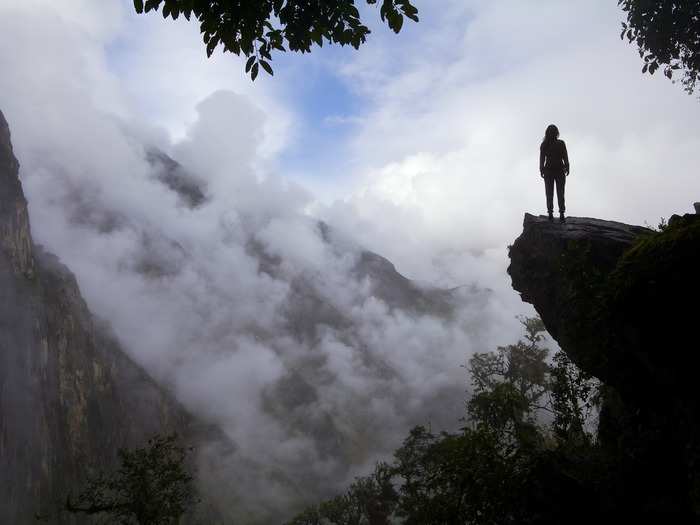
And if you get lucky, you'll even catch a double rainbow.
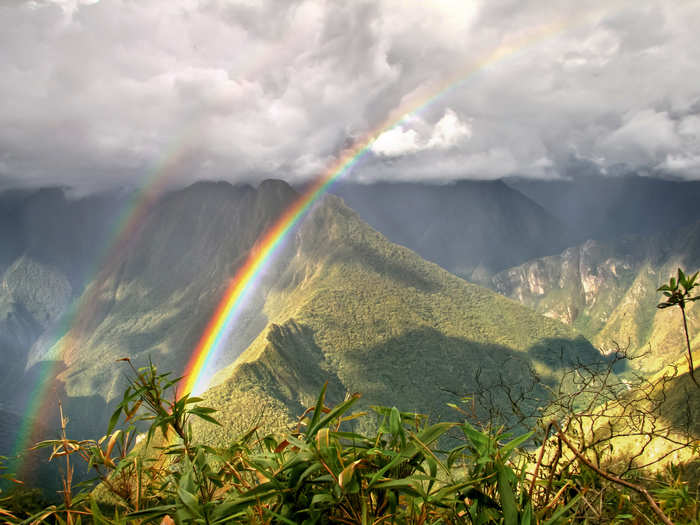
You might even get to buy some souvenirs on the way.
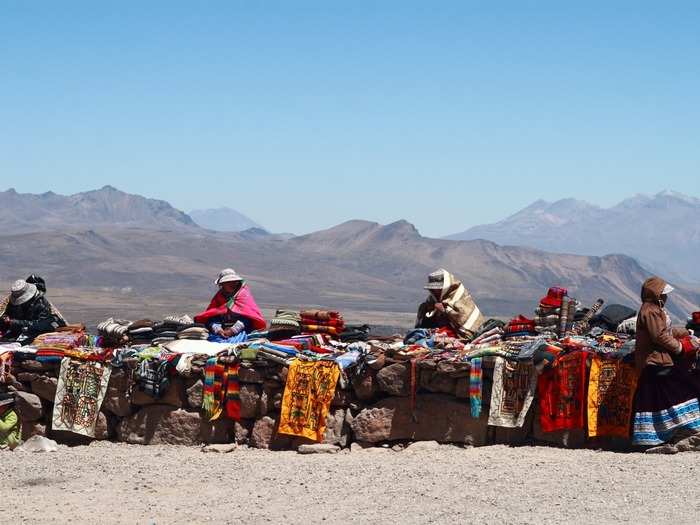
If you're not into hiking, a new luxury train (the Orient-Express Hiram Bingham train) will also take you from Cusco to Machu Picchu.
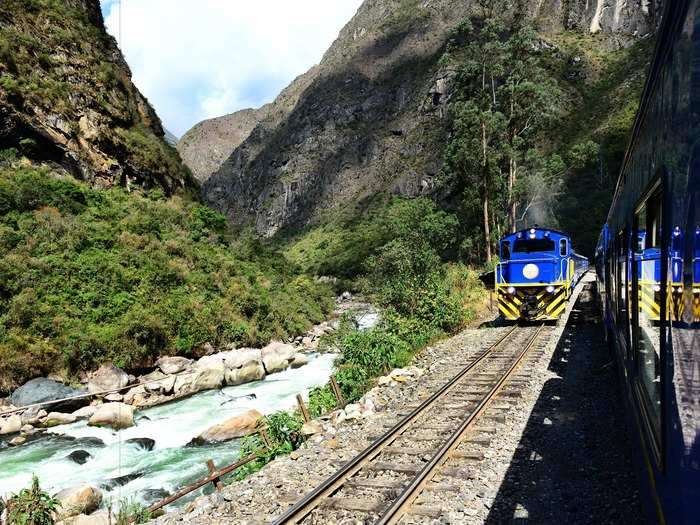
Take a tour of the train here.
The train also boasts amazing views, and can be done as a day trip or overnight excursion, as it's a 6-hour round trip.
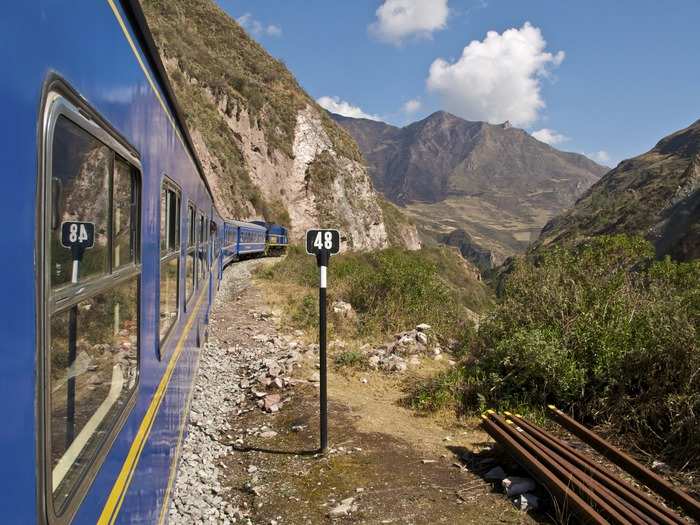
It's a lot more comfortable than walking, that's for sure.

No matter how you get there, you'll never forget that first glimpse of the Lost City of the Incas, on the eastern slopes of the Andes.
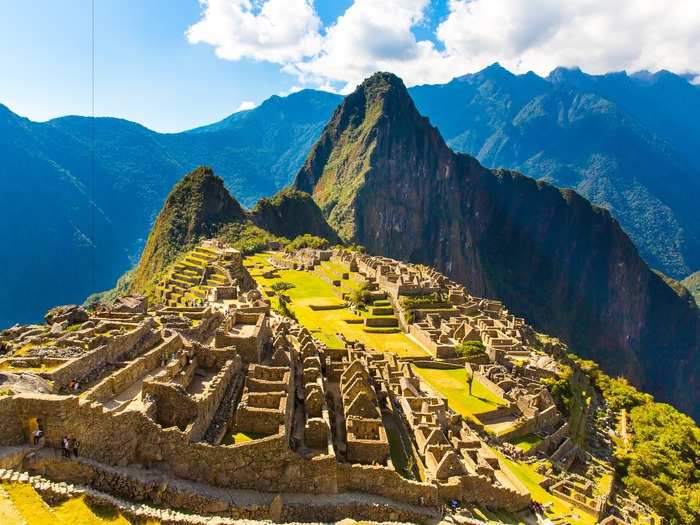
Some believe that the massive ruins were built as a royal estate for the Inca emperor Pachacuti and his nobles.
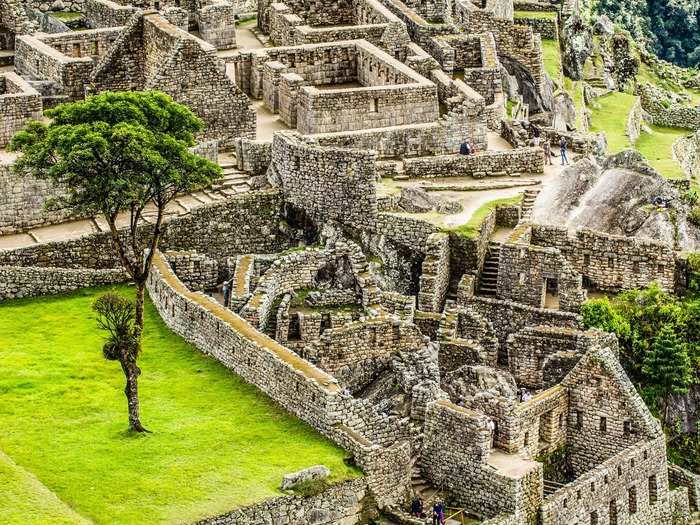
Others believe it was a religious site.
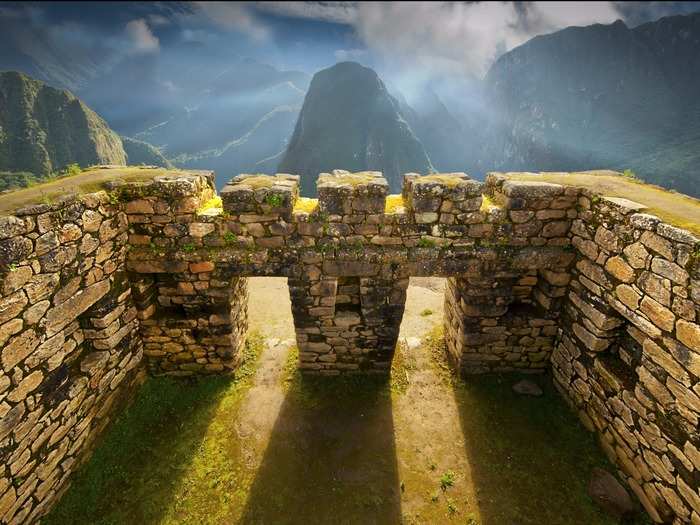
Others again believe it was an astronomical observatory — the fact that certain windows seem to have been built to track the sun during solstices supports this theory.
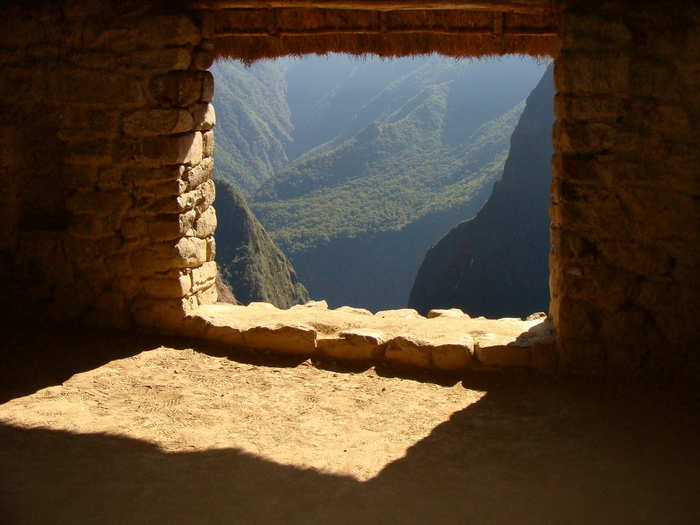
No one knows why it was abandoned either. Historians agree that it must have been built when the Inca empire peaked, which was in the 15th and 16th centuries, before they were more or less eradicated by Spanish invaders around the 1530s. Allegedly, over 1,000 people lived here at some point.
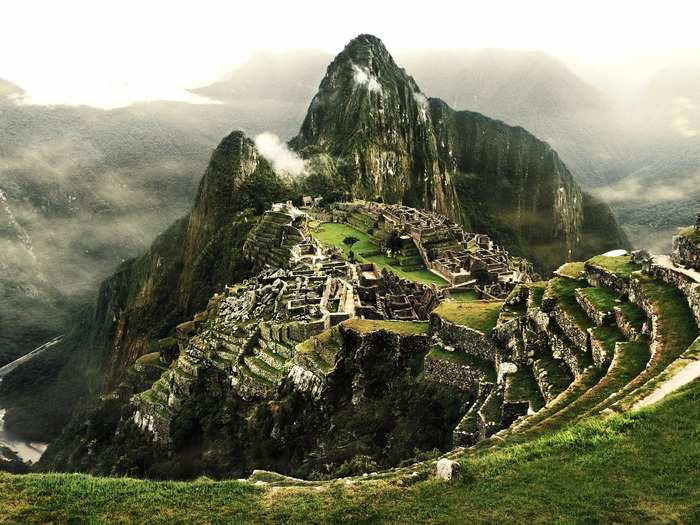
People say that it was abandoned only 100 years after being built. Some think it was due to the Spanish, but others, who point out that there's no proof that the Spanish made it up to Machu Picchu, claim that a smallpox epidemic is to blame.
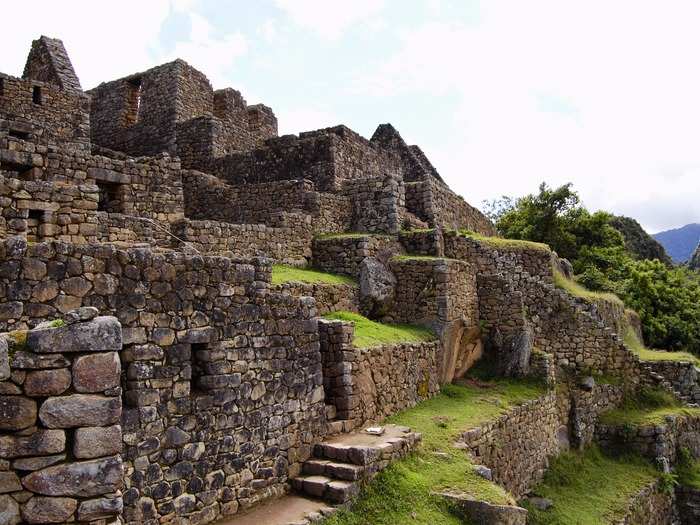
More theories again state that a drought drove the Incas off, or that they had their own civil war.
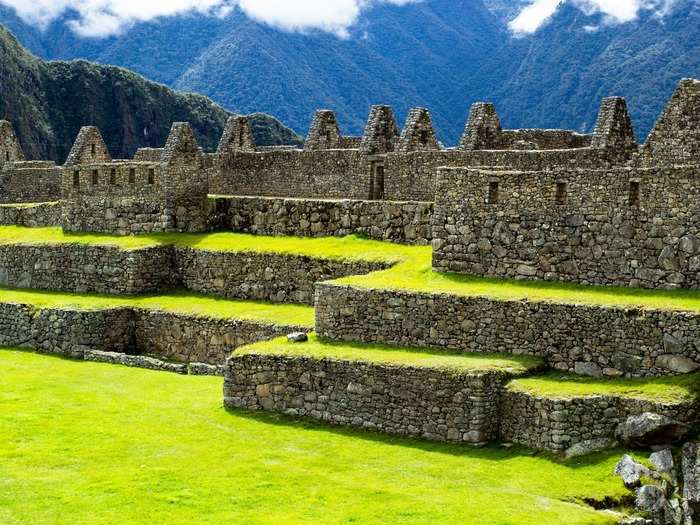
Whatever happened, the majestic complex sits 8,000 feet above sea level and is spread across five miles.
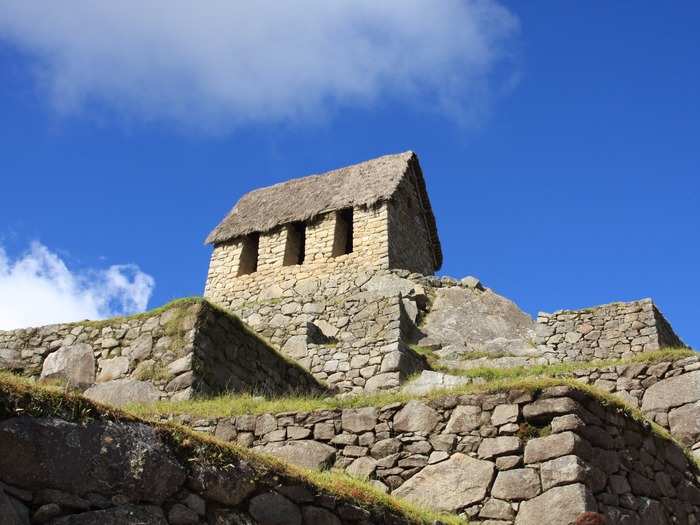
It contains 150+ buildings — baths, tombs, temples, and burial grounds — and more than 3,000 steps that connect different sites and levels.
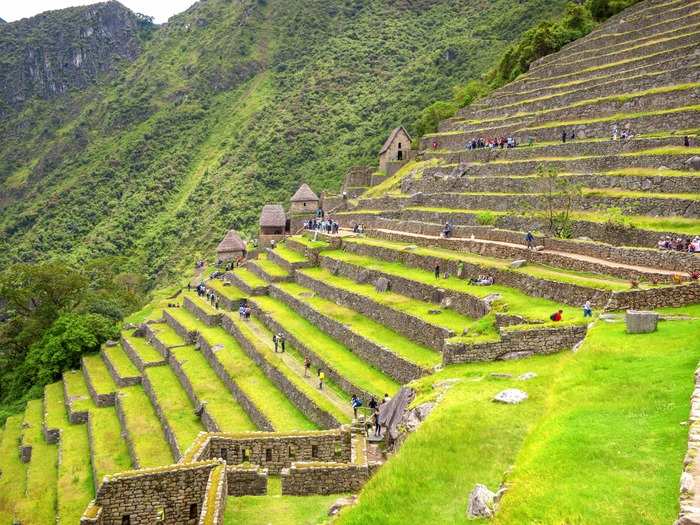
Machu Picchu contains terraces and gardens, granite temples and limestone houses, even staircases and aqueducts that are cut into the hillside.
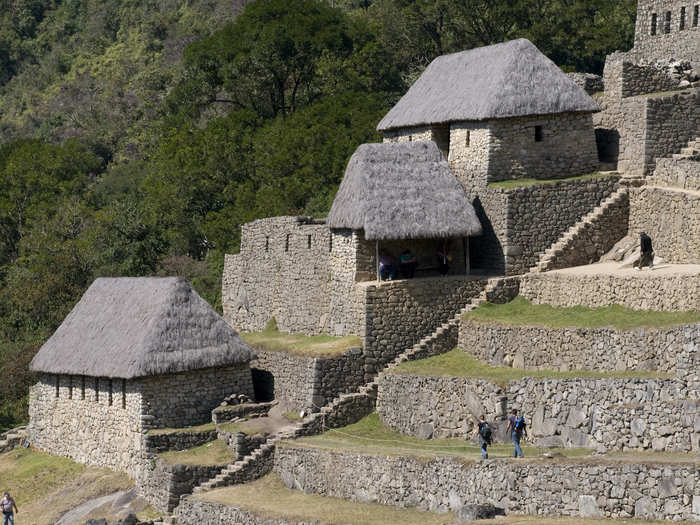
And whatever Machu Picchu was intended to be, it has some pretty advanced examples of engineering and agriculture, as well as intricate stonework and progressive irrigation systems.
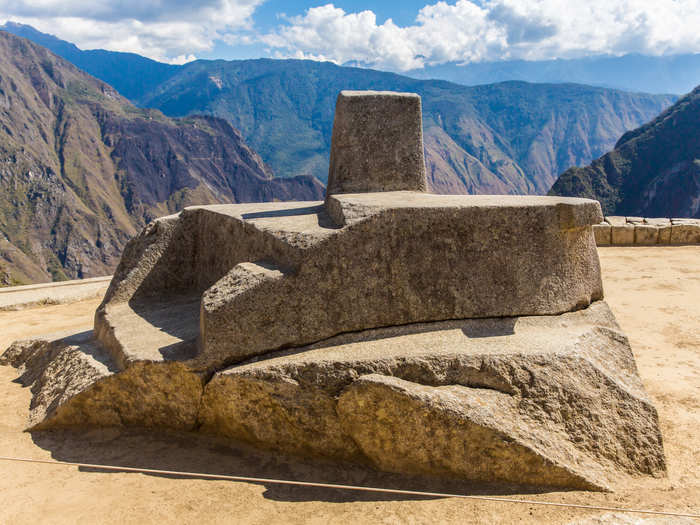
The buildings are renowned for fitting together perfectly, without the need for mortar, and without as much as a crack.
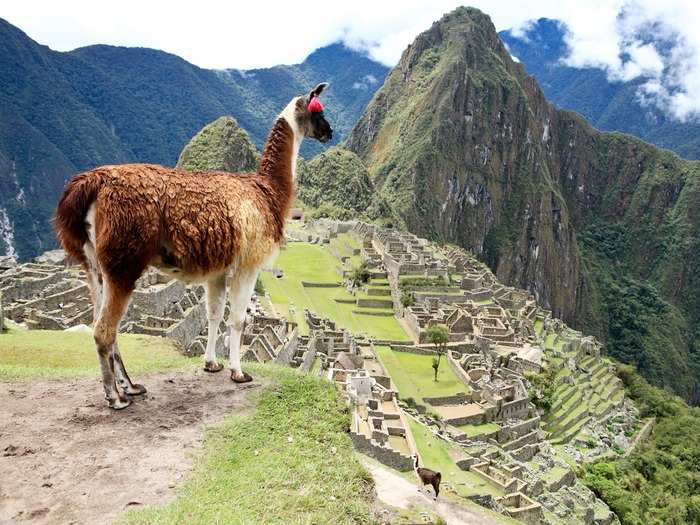
Machu Picchu was named a UNESCO World Heritage Site in 1983, as well as one of the "New Seven Wonders of the World" in 2007.

And this light must be why the area is called the Sacred Valley.
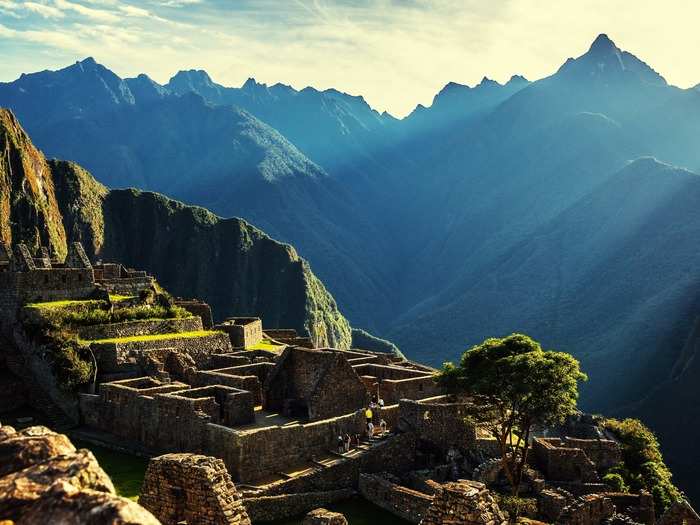
Popular Right Now
Popular Keywords
Advertisement